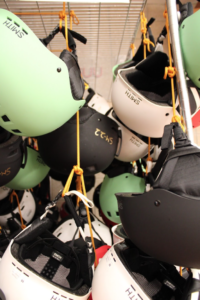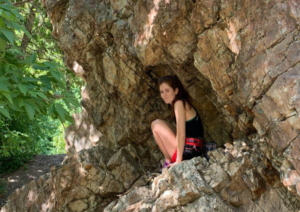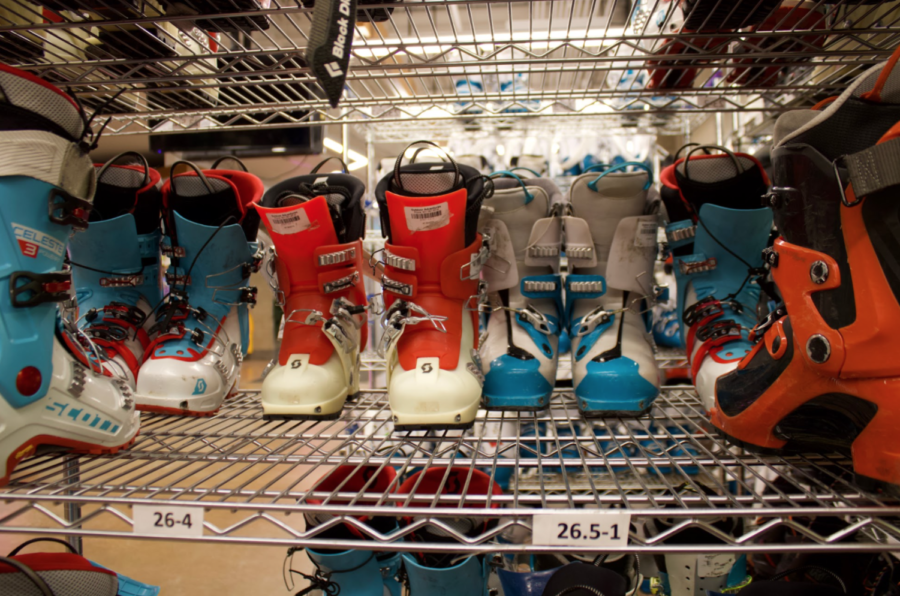Secondhand Stoke
Expanding Access and Prioritizing Sustainability in the Outdoors
Exploring new outdoor sports is an exciting way to seek new adventures and challenge ourselves to grow. For many, the first step is research. I know, I know, not exactly the most adrenaline-inducing part of the process, but an important one. Research is a great way to find out how to get involved in a new sport community, where people go, and what gear you need to get started. Chances are, there won’t be any shortage of advice about gear for whatever sport you are hoping to explore. Getting gear is obviously a must, but it can also represent a significant barrier to entry for many would-be new recreators. Expanding ways to acquire used gear could significantly improve the entry process for new adventurers while simultaneously helping the environment.
The cost associated with buying new gear can be overwhelming. Want to become a rock climber? You need climbing shoes, a helmet, a chalk bag, a harness, a rope, a rope bag, quickdraws, slings, anchor and belay devices, a bouldering pad, and a pricey gym membership, not to mention fashionable climbing clothes. Want to get into backpacking? You need a good pair of hiking shoes, maybe some hiking poles, a high-tech sleeping bag, a big pack, a tent — the list goes on. These quickly mounting prices can make outdoor recreation inaccessible to many who face personal financial burdens or to those who simply can’t justify such large upfront costs for a “hobby.” Crazy costs also plague people looking to replace old or damaged gear. Marketing techniques work hard to convince athletes, both veterans and beginners, that they need to consume the best, newest, most expensive gear to be successful and enjoy a sport to the fullest. Without the best gear, it can be easy to feel like an imposter in a new sport community, and it feels like it might be easier to just go home.
Make no mistake, gear is expensive for a reason. Expensive gear can reflect long-lasting quality, sustainable design, advanced technology, or ethical sourcing. Sacrificing these important qualities isn’t a reasonable trade-off, but there are solutions that can make quality gear more accessible. Increasing the availability of secondhand gear options could confront mass consumerism, waste, and the barriers posed by traditionally expensive new gear.
 Cost is not the only reason that buying secondhand or gently used gear should become the norm. Waste, generated by the behaviors and attitudes that characterize our throw-away culture, perpetuates resource and planetary destruction. Our collective psyche is geared (excuse the pun) toward acquiring more stuff than we know what to do with and then replacing it when something bigger and better comes along. Secondhand gear shops are a great way to find cost-effective gear and get help from knowledgeable staff members. They also play a key role in promoting more conscious consumerism, a mentality that emphasizes our collective environmental impact and encourages recirculation of what we already have.
Cost is not the only reason that buying secondhand or gently used gear should become the norm. Waste, generated by the behaviors and attitudes that characterize our throw-away culture, perpetuates resource and planetary destruction. Our collective psyche is geared (excuse the pun) toward acquiring more stuff than we know what to do with and then replacing it when something bigger and better comes along. Secondhand gear shops are a great way to find cost-effective gear and get help from knowledgeable staff members. They also play a key role in promoting more conscious consumerism, a mentality that emphasizes our collective environmental impact and encourages recirculation of what we already have.
Spotlighted below are just a few of the available options that specialize in offering more sustainable and accessible gear in the Salt Lake City area.
Located in Cottonwood Heights, The Gear Room offers a range of both new and used outdoor clothing and climbing, skiing, and ski touring gear. The business encourages sustainable consumption of gear. For example, instead of paying for a new pair of climbing shoes, The Gear Room encourages people to bring in their worn shoes and get them re-soled at a much more affordable cost. Bonus: You can bring your own used gear in and donate it for consignment.
In addition to organizing student outdoor expeditions and providing free clinics for topics like backcountry navigation and first-aid, Outdoor Adventures (OA) offers the largest collegiate gear rental service in the US. Located inside the Student Life Center on the University of Utah campus, OA rents camping, climbing, skiing and boarding, rafting, and biking gear. Renting gear reduces costs when first trying a sport, but also allows “test-driving” equipment before buying your own. Outdoor Adventures not only offers discounted rentals to University of Utah staff and students, but also rents to non-university-affiliated adventurers at affordable prices.
Bonus: You can rent gear “packages” that include full set-ups for sports like skiing or climbing, or rent individual gear items depending on your needs.
Internet resources like KSL Classifieds and Facebook Marketplace can also be helpful in finding used gear at a reduced cost.
But what does the future of sustainable and accessible stoke look like? How can current options become more radical in removing barriers to entry and prioritizing environmental impact in the outdoor gear industry?
Consumer cooperatives, motivated by philosophies of community support and ethical production and consumption processes, offer a unique model for gear access that diffuses the cost among consumers. Cooperatives can also offer gear exchanges. Recreational Equipment, Inc (REI) is a well-known example of this model, offering secondhand gear options on their website and a “Garage Sale” section in most of their retail locations. In some locations, REI also has a buyback program that exchanges gently used gear for gift cards.
Similarly, gear lending libraries offer a unique solution to improving accessibility, aiming to provide gear access to underserved populations. Many libraries believe in protecting the earth from mass consumerism, waste, and resource extraction, as well as reducing cost barriers to outdoor experiences. Libraries typically involve affordable membership fees that allows you to borrow what you need for an adventure. One such organization, The Gear Lending Library in Cortez, Colorado, provides gear to families, kids, and schools to actively confront barriers to the outdoor space.
Co-ops, seeking to minimize cost burden and undertake collective action in the name of sustainability, and lending libraries, seeking to eliminate barriers to accessing outdoor adventure, offer exciting visions for a future in which secondhand stoke brings us all closer to the outdoors and each other.



